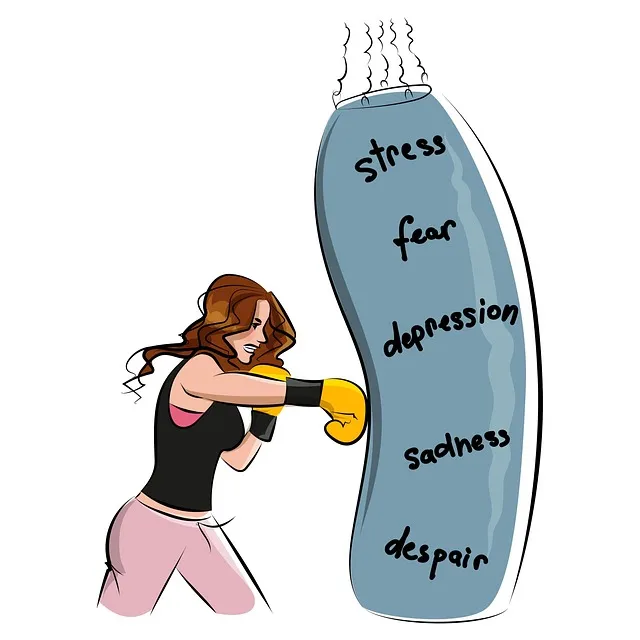Wheat Ridge Kaiser Permanente behavioral health services focus on empowering individuals with essential coping skills for mental wellness. Through techniques like mindfulness exercises, stress reduction, and journaling, they help patients navigate challenges effectively. By fostering healthy communication and connections, these services enhance resilience and quality of life, ensuring individuals have tools to process feelings, reduce stressful events' impact, and improve mood management. Personalized strategies, including cognitive-behavioral therapy and EMDR, tailored to individual needs, are key to success. Cultural sensitivity and mental health awareness initiatives further support holistic wellness. Wheat Ridge Kaiser Permanente is transforming behavioral health care by integrating coping skills development as a core component of their evidence-based services.
At Wheat Ridge Kaiser Permanente Behavioral Health Services, we understand the vital role coping skills play in mental wellness. This comprehensive guide explores effective coping mechanisms and their significance in managing stress, anxiety, and emotional challenges. We delve into personalized strategies tailored to individual needs, practical techniques for daily application, and integration of these skills within our healthcare setting. Discover how Wheat Ridge Kaiser Permanente empowers individuals to thrive through evidence-based coping skills development.
- Understanding Coping Skills: An Overview for Wheat Ridge Kaiser Permanente Behavioral Health Services
- The Importance of Developing Effective Coping Mechanisms
- Identifying Individual Needs and Personalized Strategies
- Practical Techniques to Enhance Coping Skills in Daily Life
- Integrating Coping Skills into the Healthcare Setting at Wheat Ridge Kaiser Permanente
Understanding Coping Skills: An Overview for Wheat Ridge Kaiser Permanente Behavioral Health Services

Coping skills are essential tools for maintaining mental wellness, and Wheat Ridge Kaiser Permanente behavioral health services play a crucial role in empowering individuals to navigate life’s challenges effectively. Understanding coping skills involves recognizing that everyone faces stress, anxiety, or difficult emotions at some point, and having adaptive strategies to manage these experiences is vital. These skills can help individuals process their feelings, reduce the impact of stressful events, and improve overall mood management.
At Wheat Ridge Kaiser Permanente behavioral health services, professionals guide patients through various techniques like mindfulness exercises, stress reduction strategies, and even mental wellness journaling exercise guidance. Additionally, communication strategies are emphasized to foster healthy connections with others, which is a key component of emotional support. By teaching these adaptive coping mechanisms, the organization ensures that individuals gain valuable tools to enhance their resilience and overall quality of life.
The Importance of Developing Effective Coping Mechanisms

Developing effective coping mechanisms is a vital aspect of maintaining mental well-being, and it plays a crucial role in managing stress, anxiety, and potential crises. According to Wheat Ridge Kaiser Permanente behavioral health services, equipping individuals with robust coping skills can significantly reduce the impact of mental illness and promote overall resilience. In today’s fast-paced world, where various challenges and stressors are prevalent, having a toolkit of healthy coping strategies is essential for navigating life’s twists and turns.
The process of cultivating these mechanisms involves recognizing personal triggers and developing personalized strategies. By learning to manage intense emotions and adopting positive behavioral changes, individuals can effectively cope with difficult situations. Wheat Ridge Kaiser Permanente emphasizes that this skill set is particularly beneficial in reducing the Stigma associated with mental illness and fostering better support for those facing psychological crises. Crisis intervention guidance and risk assessment for mental health professionals are integral components of ensuring that these coping skills are taught and utilized safely and ethically, benefiting both the individuals seeking help and the providers offering assistance.
Identifying Individual Needs and Personalized Strategies

Understanding individual needs is a cornerstone of effective coping skills development, especially when tailored to the unique experiences and challenges presented by Wheat Ridge Kaiser Permanente behavioral health services. Each person’s journey towards mental wellness is distinct, often influenced by their personal history, cultural background, and specific life circumstances, including any past or present trauma. Therefore, a comprehensive assessment process that delves into these aspects becomes crucial in designing personalized strategies for coping skills development.
This individualized approach ensures that the support provided aligns seamlessly with clients’ real-world struggles. For instance, Trauma Support Services within Wheat Ridge Kaiser Permanente behavioral health services might employ techniques such as cognitive-behavioral therapy, mindfulness practices, or eye movement desensitization and reprocessing (EMDR) to help individuals process traumatic memories while teaching them coping mechanisms specifically suited to their needs. By focusing on personal growth and resilience, these tailored strategies empower clients to navigate life’s challenges with enhanced mental wellness.
Practical Techniques to Enhance Coping Skills in Daily Life

Incorporating practical techniques into daily routines can significantly enhance coping skills, as advocated by Wheat Ridge Kaiser Permanente behavioral health services. Mindfulness practices such as meditation and deep breathing exercises have been shown to reduce stress and anxiety, fostering a sense of calm in challenging situations. Additionally, engaging in regular physical activity releases endorphins, which act as natural mood lifters, promoting emotional well-being.
Cultural sensitivity in mental healthcare practice is another key aspect. Understanding and respecting diverse cultural beliefs and practices can lead to more effective coping strategies. For instance, some cultures may prefer traditional healing methods or specific support systems for managing stress and emotions. Mental health awareness initiatives play a crucial role in encouraging open conversations around coping skills development, breaking down stigma, and providing accessible resources for individuals seeking to enhance their resilience in daily life.
Integrating Coping Skills into the Healthcare Setting at Wheat Ridge Kaiser Permanente

Wheat Ridge Kaiser Permanente has recognized the importance of integrating coping skills development as a core component of their behavioral health services. This commitment is reflected in their comprehensive approach to patient care, focusing on both physical and mental well-being. By incorporating evidence-based coping strategies into routine healthcare practices, Wheat Ridge Kaiser Permanente aims to empower patients with effective tools for managing stress, anxiety, and other mental health challenges.
The organization prioritizes Mood Management as a key aspect of their strategy, offering various programs and resources tailored to individual needs. Additionally, they emphasize Healthcare Provider Cultural Competency Training to ensure that staff are equipped to address the unique coping needs of diverse patient populations. Through these initiatives, Wheat Ridge Kaiser Permanente not only enhances the quality of care but also aligns with the broader Mental Health Policy Analysis and Advocacy efforts, fostering a holistic and supportive environment for all patients accessing their services.
Coping skills development is a powerful tool for improving mental well-being, and Wheat Ridge Kaiser Permanente Behavioral Health Services plays a vital role in equipping individuals with effective strategies. By understanding the importance of coping mechanisms, identifying personal needs, and utilizing practical techniques, people can enhance their ability to navigate life’s challenges. Integrating these skills into healthcare settings at Wheat Ridge Kaiser Permanente fosters a supportive environment, enabling individuals to manage stress, improve resilience, and lead more fulfilling lives.






